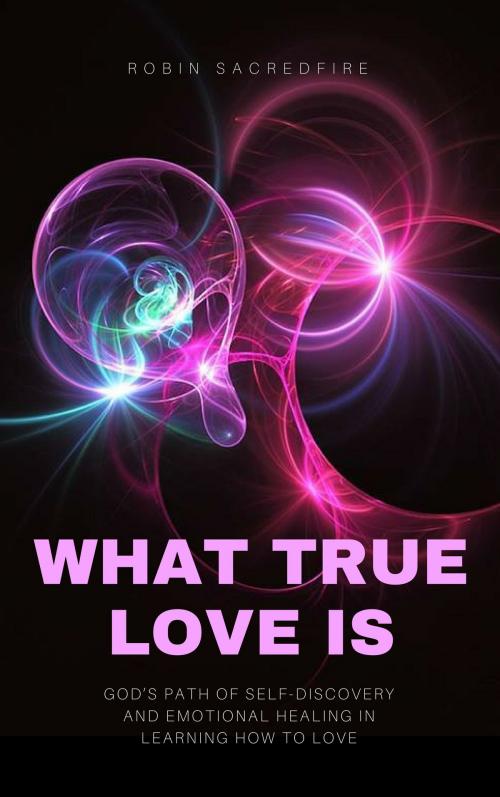What True Love Is: God’s Path of Self-Discovery and Emotional Healing in Learning How to Love
Nonfiction, Health & Well Being, Self Help, Self Improvement, Motivational| Author: | Robin Sacredfire | ISBN: | 9780463981443 |
| Publisher: | 22 Lions Bookstore | Publication: | August 14, 2018 |
| Imprint: | Smashwords Edition | Language: | English |
| Author: | Robin Sacredfire |
| ISBN: | 9780463981443 |
| Publisher: | 22 Lions Bookstore |
| Publication: | August 14, 2018 |
| Imprint: | Smashwords Edition |
| Language: | English |
During your entire life, you’ll experience the worst and the best from everyone you’ll encounter, and most of the times, you’ll be unaware of how much these experiences affect your attitude towards others.
We grow more positive or negative, depending on the amount of negativity or positivity accumulated from our experiences, and depending also on how we handle them within us. But are we victims? Do we deserve what happens to us? Do we have a choice on how we learn from each relationship? Can we truly change and become better persons?
The answers we choose for any of these questions defines who we are, what we do, and the decisions we make along our path with the ones we encounter. Such decisions, on the other hand, will then reflect back at our identity, by reinforcing what already exists within us, or by leading us into the recreation of a new self.
There is no such thing as being stronger or weaker but merely more ware or not of our own power and responsibility towards our life. And, no matter what, it is still better to be aware under any circumstance than having a false pride in what regards our perceptions of the world and society in particular. We shouldn’t need masks to hide our nature from others.
The lack of answers to our questions related to love, either for us or others, defines a strong ideal and values lacking recognition, and not the opposite. This is what we see in beautiful women that can’t find the man they’re looking for, get married, have children and live wonderful family lives. They may even start developing the idea that men don’t appreciate them, that men only love the wrong women and, in doing so, become more depreciative and bitter themselves. And once this happens, they will probably find other explanations to deny the failure within their ego. And such answers will then revert back into blaming others or circumstances, rather that restarting a healing process that is necessary to occur from within. And the problem in all this equation, that actually applies to both genders, is not related to results only, but foremost to whom we become. To look at such individuals and say that they can’t have a healthy relationship isn’t as important as to say that they don’t love themselves. They’ve lost their sense of purpose. And now, the answers they seek are related to the belief that they’re superior to others in intellect and independency. The answers that these individuals need, on the other hand, are found within their heart and hidden behind prejudice and defense mechanisms they've learned to apply in all encounters.
With these concepts in consideration, this book intends to provide more wisdom on how to handle difficult relationships and overcome the problem on not being able to give and receive love, while looking at the social, psychological and spiritual perspectives, and by understanding how they interact in our own personal perception of reality.
During your entire life, you’ll experience the worst and the best from everyone you’ll encounter, and most of the times, you’ll be unaware of how much these experiences affect your attitude towards others.
We grow more positive or negative, depending on the amount of negativity or positivity accumulated from our experiences, and depending also on how we handle them within us. But are we victims? Do we deserve what happens to us? Do we have a choice on how we learn from each relationship? Can we truly change and become better persons?
The answers we choose for any of these questions defines who we are, what we do, and the decisions we make along our path with the ones we encounter. Such decisions, on the other hand, will then reflect back at our identity, by reinforcing what already exists within us, or by leading us into the recreation of a new self.
There is no such thing as being stronger or weaker but merely more ware or not of our own power and responsibility towards our life. And, no matter what, it is still better to be aware under any circumstance than having a false pride in what regards our perceptions of the world and society in particular. We shouldn’t need masks to hide our nature from others.
The lack of answers to our questions related to love, either for us or others, defines a strong ideal and values lacking recognition, and not the opposite. This is what we see in beautiful women that can’t find the man they’re looking for, get married, have children and live wonderful family lives. They may even start developing the idea that men don’t appreciate them, that men only love the wrong women and, in doing so, become more depreciative and bitter themselves. And once this happens, they will probably find other explanations to deny the failure within their ego. And such answers will then revert back into blaming others or circumstances, rather that restarting a healing process that is necessary to occur from within. And the problem in all this equation, that actually applies to both genders, is not related to results only, but foremost to whom we become. To look at such individuals and say that they can’t have a healthy relationship isn’t as important as to say that they don’t love themselves. They’ve lost their sense of purpose. And now, the answers they seek are related to the belief that they’re superior to others in intellect and independency. The answers that these individuals need, on the other hand, are found within their heart and hidden behind prejudice and defense mechanisms they've learned to apply in all encounters.
With these concepts in consideration, this book intends to provide more wisdom on how to handle difficult relationships and overcome the problem on not being able to give and receive love, while looking at the social, psychological and spiritual perspectives, and by understanding how they interact in our own personal perception of reality.















